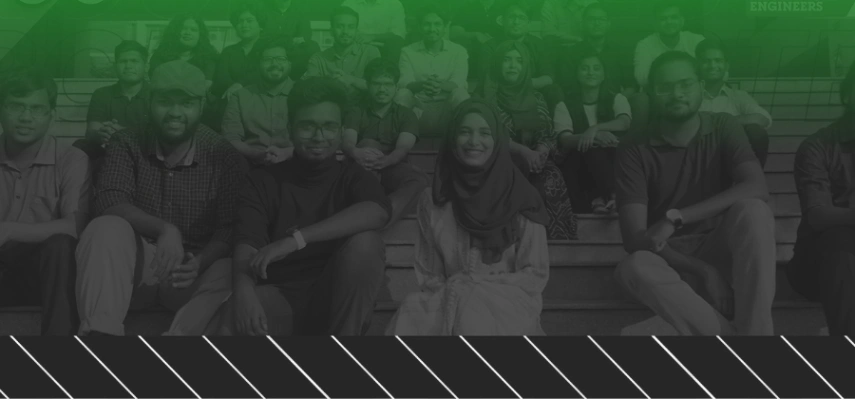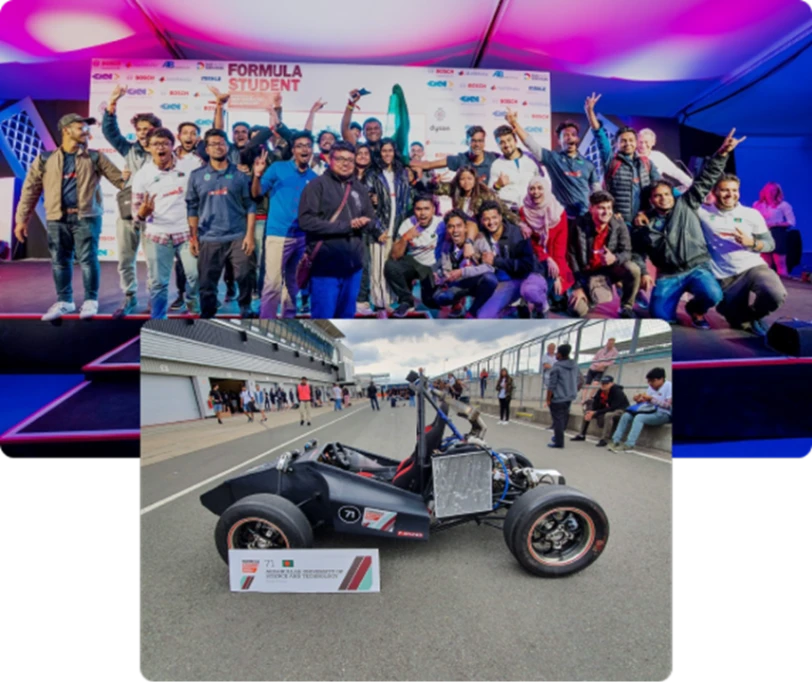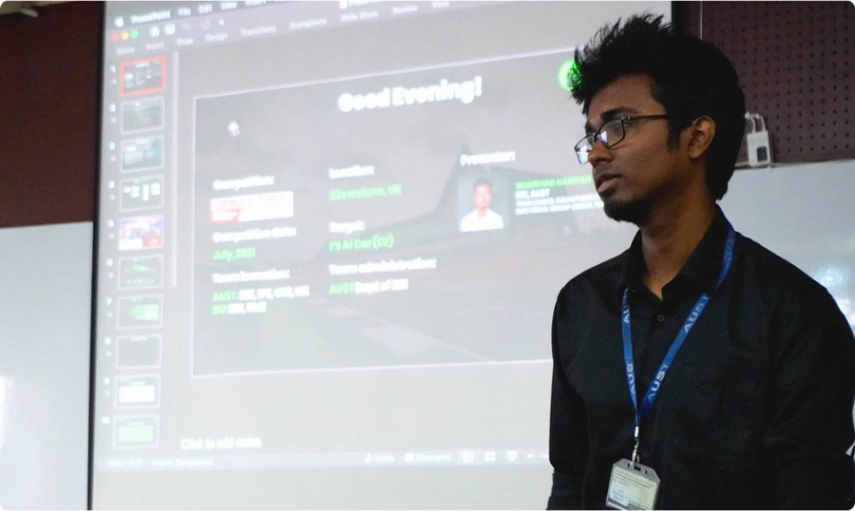

Circuit Maesters | First self driving vehicle of Bangladesh
Problem statement
Bangladesh lags significantly behind in the R&D of self-driving vehicles, which is largely due to the inadequate investment in AI technologies, lack of access to necessary datasets, and a shortage of skilled professionals in this field. This technological gap is concerning since self-driving vehicles have the potential to revolutionize transport, reducing congestion and accidents, and promoting sustainability.
Objectives
Build a self-driving formula style vehicle (Level-4 autonomy)
Participate at Formula Student UK (Artificial Intelligence Segment)
Establish a community for future students to research and work with self-driving vehicle
Solution
It is therefore crucial for young engineering students from our country to focus on the research of self-driving vehicle, as they will play a vital role in building the dataset curated to the exceptional traffic situations arise on our roads and also improve the existing algorithms. The availability and caliber of local datasets will have a significant impact on the development of autonomous car technology that is Bangladesh-Road-Ready. As such, these students should be encouraged to gather and work with data relevant to the unique road conditions and traffic behaviors in their regions. This way, they can contribute to the development of AI systems that can safely navigate the complex driving environments of the Indian subcontinent.
Circuit Maesters was founded in the aim to develop the country's first self-driving vehicle (a much simpler version in terms of features and engineering, than the industry grade self-driving vehicles that are available at consumer level). The primary goal was to inspire local university-level engineering students to further research and contribute in this field.
How it all started?
It all started back in August 2019, after I returned with Team Primus from Formula Student UK 2019 event. During my amazing experience at the event, I had the opportunity to visit the exhibitions from other teams. Teams from different universities from all around the world. I was very fascinated by the self-driving vehicles that I had seen which were designed by my peers from first world countries, but the most interesting fact to me about them was, they all looked 'achievable' to me.
I have my talented childhood friends working with me at BiTechX, who have prior experience in machine learning based development, I have already gained experience building a formula style vehicle with Team Primus, and I am already in my 5th semester of undergrad in Electrical & Electronic Engineering (EEE) so I have the electrical/electronic aspect of the vehicle covered as well. So what's stopping me from founding a team and starting to grind?

I proposed this idea to a few of my classmates in EEE including some of former Team Primus teammates, and invited them to join me in this venture. My initial criteria to select founding members was to find qualities that can drive the team towards successfully achieving all goals. I also invited my friends from another university (University of Dhaka ), to join us since they had better prospects at managing the AI team than others.
After setting up a founding team, I drafted a proposal including roadmap and organized a project proposal presentation inviting all the senior faculty members of EEE. Later, I approached Prof. Dr. Ehtesanul Islam (head of EEE at that time) and Prof. Dr. Omar Farrok too with an invitation to become our supervisor and 2nd-supervisor respectively, since they had the capacity to provide us with most necessary resources.
Most of our last quarter of 2019 and first quarter of 2020 was spent building the perfect team, and raising funds to purchase initial components. In the beginning of 2020, when we had already recruited about 30 engineering students from five disciplines and two universities, I with the help of our supervisor approached our Vice Chancellor for funding and logistic help from the university. The roadmap was designed to build the vehicle by the beginning of 2021 and participate at the Formula Student UK AI 2021 event in July, 2021. By March 2020, the team had raised about 6.5 lacs BDT (about 6,200 USD as of 2023) from student members and also secured university's assistance in logistics and funding throughout the journey.



To ensure dedicated research and focused group work, as the leader of the team, I divided the 30-student team into five groups, each having its own group leader. Group leaders were responsible for delegating the research and design tasks to their group members and communicate between the groups to ensure design compatibility.
The teams are (sorted by roadmap flow):
1. Business Logic Case Group
Group Leader: Maham Ahmad (Industrial & Production Engineering, Ahsanullah University of Science & Technology)
Responsible for sourcing the materials, cost calculation, marketing, recruitment and other business aspects of the team.
2. Chassis Design & Fabrication Group
Group Leader: Hossain M Yousuf (Mechanical Engineering, Ahsanullah University of Science & Technology)
Responsible for suspension design, vehicle geometry design, chassis design/fabrication, etc.